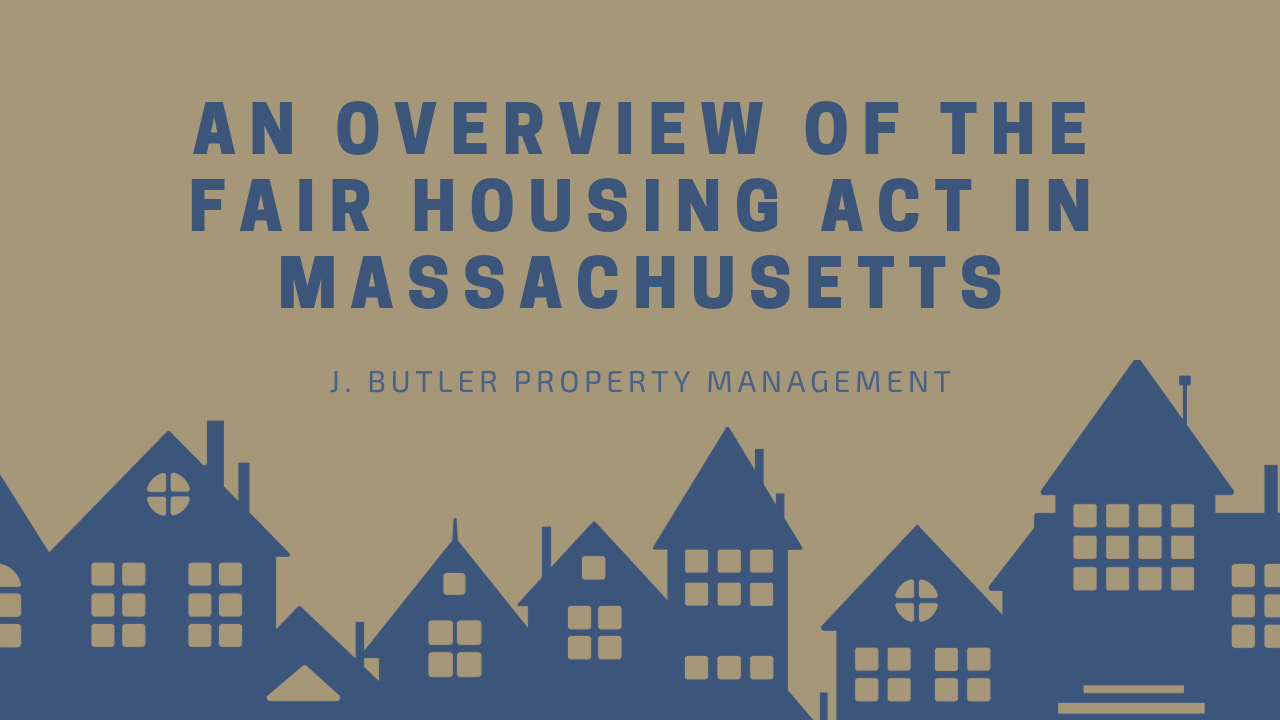
Massachusetts Fair Housing Act: An Overview
November 29, 2023
Massachusetts Fair Housing Act: An Overview
The Fair Housing Act (FHA) stands as a cornerstone of legislation designed to eliminate housing discrimination in fair housing laws across the United States. Enacted to ensure that all individuals have equal access to housing opportunities, the Fair Housing Act in Massachusetts stands as a beacon of justice and equality in the housing sector.
This comprehensive article will share the key components of the Fair Housing Act in Massachusetts. By understanding fair housing laws, residents and housing providers alike contribute to the creation of a fair and just housing landscape.
What is the Fair Housing Act
The primary goal of the FHA is to reduce unfairness in various facets of the housing sector. Initially focused on preventing favoritism based on race, color, religion, and national origin, the fair housing laws have undergone significant amendments to broaden its scope and inclusivity.
In 1974, sex was added as a protected, recognizing the importance of gender equality in housing. A further amendment to fair housing laws was adopted in 1988, prohibiting unfairness or bias against persons with disabilities and members of families, reaffirming the commitment to promote diversity and inclusion in communities.
The fair housing law extends beyond the mere process of renting or buying a home. The FHA ensures equal opportunities in housing assistance applications, community development fund allocations, home appraisals, mortgage lending processes, and even real estate listings through services.
What Type of Discrimination Does the Fair Housing Act Prohibit in Massachusetts?
Here is a detailed overview of the types of housing based prejudice that the Fair Housing Act in Massachusetts explicitly prohibits:

- Race: The Fair Housing Act unequivocally prohibits prejudice based on race. A housing provider cannot treat individuals differently or deny them housing opportunities due to their racial background.
- Religion: Prejudice based on religion is strictly prohibited. Individuals must not face bias or unequal treatment in housing matters due to their religious beliefs or practices.
- National Origin: Housing prejudice based on an individual’s national origin is expressly forbidden. This ensures that people from different countries are treated fairly and equally in the housing market.
- Sex: It is illegal to discriminate on the basis of a person’s gender under the Fair Housing Act. This includes ensuring that individuals are not treated differently or denied housing opportunities because of their gender.
- Familial Status: Prejudice against individuals based on their familial status is forbidden. This protects families with children under the age of 18 from facing unfair treatment or denial of housing.
- Gender Identity and Expression: Prejudice based on sexual orientation or expression is explicitly prohibited. This safeguards individuals who may identify differently from their assigned gender at birth.
- Disability: Massachusetts law provides robust protection against prejudice based on disability. It is the responsibility of housing providers to ensure accessibility for individuals with disabilities.

- Marital Status: Housing discrimination based on marital status is forbidden. Individuals cannot be denied housing opportunities or treated unfairly due to their marital status.
- Military and Veteran Status: The Fair Housing Act protects individuals from discrimination based on their military or veteran status. This ensures that those who have served in the military are not unfairly treated in the housing market.
- Ancestry: Discrimination based on ancestry is also explicitly prohibited. Individuals cannot face bias or unequal treatment in housing matters due to their ancestral background.
- Source of Income: It is against the law to turn away a potential tenant for any reason, including receiving medical help, public assistance (such as TAFDC, SSI, Welfare, or Food Stamps), or any other type of federal, state, or municipal housing support.
Role of Landlords in Fair Housing Act
Landlords play a crucial role in upholding fair housing state and federal law and ensuring that all individuals have equal opportunities in the housing market while maintaining legal compliance with landlord-tenant laws.
Here are several ways in which landlords can provide fair housing:
- Know and Understand Fair Housing Laws: Landlords should familiarize themselves and stay up to date with state and federal law pertaining to housing. Understanding the legal framework is essential to prevent unintentional violations and to ensure compliance with anti-discrimination regulations.

- Treat All Applicants Equally: Landlords should familiarize themselves and stay up to date with federal, state, and local fair housing laws. Understanding the federal law framework is essential to prevent unintentional violations and to ensure compliance with anti-discrimination regulations.
- Advertise in an Inclusive Manner: Advertisements of rental properties should be inclusive and avoid any language or imagery that may suggest a preference for or exclusion of certain groups. Use wording that emphasizes the features of the property rather than targeting specific demographics.
- Apply Consistent Screening Criteria: Landlords should establish and apply consistent screening criteria for all applicants. This can include factors such as credit history, rental history, and income. Applying these criteria helps to avoid perceptions of discrimination.
- Reasonable Accommodations for Disabilities: Landlords must be willing to make accommodations for tenants with disabilities in a prompt fashion. This may include modifications to the property or adjustments to rules, policies, or procedures to ensure equal access and enjoyment of the housing.
- Be Aware of Implicit Bias: Landlords should be conscious of any implicit biases that may influence their decisions. It’s important to make decisions based on objective criteria rather than personal biases or stereotypes.

- Provide Clear and Consistent Communication: Communication with tenants should be clear, consistent, and free from discriminatory language. This applies to all aspects of the landlord-tenant relationship, including lease agreements, eviction notices, and general interactions.
Final Words
Fostering fair housing practices is not only a fair housing law legal obligation but a fundamental step toward building inclusive and diverse communities. Landlords play a pivotal role in shaping the housing landscape, and by adhering to the principles of the fair housing law, they contribute to creating an environment where individuals from all walks of life have equal opportunities to secure a home.
If you’re looking to enhance your property management practices and ensure compliance with Massachusetts law and fair housing laws, consider partnering with J. Butler Property Management. Our experienced team is dedicated to fostering inclusive housing environments and can provide valuable guidance to help you navigate the complexities of fair housing regulations.
Disclaimer: Please note that the information provided in this blog is intended for general guidance and should not be considered as a replacement for professional legal advice. It is important to be aware that laws pertaining to property management may change, rendering this information outdated by the time you read it.


